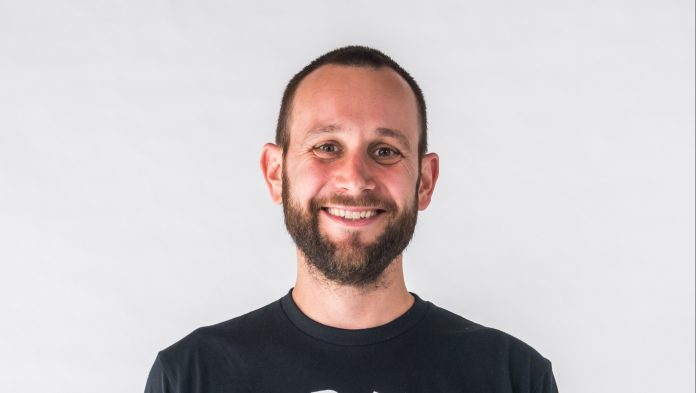Ben Kovacs has executive experience in a variety of fields and companies. He has worked at Twitter, served as Chief Revenue Officer of the Norcal Cannabis Company, co-founded a martial arts training space at Guardian Project, and sits at the Board of Directors of Next Green Wave Holdings. He is also the executive chairman at Myster and Octave, a company selling cannabis accessories.
At Myster, Ben Kovacs helped the company get off the ground by being its seed investor and working as advisor to its “strategic roadmap as it tries to reach the goal of being the leading worldwide company in cannabis accessories.”
At the Guardian Project, Ben Kovacs started a 501c3 nonprofit organization “dedicated to providing every child in the world the opportunity to train martial arts, regardless of financial limitations.” The non-profit focuses on Brazilian Jiu Jitsu and Boxing “to make an impact on students in the areas of self-defense, confidence, and community for youth.” In 2016, the organization opened its flagship academy in downtown Oakland. After a year, Guardian has served “over 130 youth students and 100 adults,” offering completely free gyms and programs to kids 10 to 18 years old, funded by adult memberships and donations.
Currently, Ben Kovacs is hopeful that the cannabis industry could grow even bigger in 2021, despite the pandemic.
Check out more interviews with innovative founders here.
Jerome Knyszewski: Thank you so much for joining us in this interview series! Before we dive in, our readers would love to “get to know you” a bit better. Can you tell us a bit about your ‘backstory’ and how you got started?
Ben Kovacs: I worked at Twitter for a number of years before getting a calling to start a non-profit. We opened up Guardian, a non-profit martial arts gym in Oakland, CA in 2016 and it became one of the fastest-growing non-profits in the bay area. Around 2018 I wanted to get back into a more lucrative business so I began investing in cannabis which eventually led me to becoming the Chief Revenue officer at NorCal cannabis.
I learned a ton about the cannabis industry and met most of the important contacts in the California cannabis industry during that time. Throughout that entire process, I was working with my partner, Davis, to continue to develop our hardware and accessories companies, Octave & Myster, which I eventually decided to turn a large part of my attention to as that business really started hitting a tipping point of going from a hobby business to one with differentiated products and significant upside.
Jerome Knyszewski: What was the “Aha Moment” that led to the idea for your current company? Can you share that story with us?
Ben Kovacs: The real tipping point for our hardware and accessories business was when we decided to bring in our overseas partners. This significantly diluted us as founders, but it was the best decision we ever made to lock down our supply chain with the best engineers in the world to create world-class products and take the company to the next level.
Jerome Knyszewski: Can you tell us a story about the hard times that you faced when you first started your journey? Did you ever consider giving up? Where did you get the drive to continue even though things were so hard?
Ben Kovacs: So many times we almost gave up. We were always running near empty, mostly bootstrapping the company with very limited salaries and overhead. It’s a costly business to get off the ground, order inventory, and develop products while waiting for sales and customer payments to catch up. It’s why having partners is so important, it’s a lot harder to throw in the towel when your letting down your friends who you have seen sacrifice so much.
Jerome Knyszewski: So, how are things going today? How did your grit and resilience lead to your eventual success?
Ben Kovacs: Today we have really turned the corner and will launch the most robust roadmap in 2021 with the best cannabis accessories worldwide. I believe that the focus on being resilient and always fighting that uphill battle made us work harder, and not be lazy. So many companies raise money on just an idea and then squander it with bad decisions and a bloated team. Not having the luxury to do that might have been the luckiest break we got, even if we didn’t realize it at the time.
Jerome Knyszewski: Can you share a story about the funniest mistake you made when you were first starting? Can you tell us what lessons or ‘takeaways’ you learned from that?
Ben Kovacs: We made lots of mistakes. One time we wired $25,000 to the wrong place in China, most likely scammed by an employee at a factory. We never saw that money again, and certainly didn’t have it to spare at the time.
Jerome Knyszewski: Can you share a few examples of tools or software that you think can dramatically empower emerging eCommerce brands to be more effective and more successful?
Ben Kovacs: We use all the basics. Slack for internal communication, Hubspot for CRM, Mailchimp for email marketing. We have found actually that there is a tendency to constantly chase shiny objects with their latest and greatest software, but are almost always disappointed.
Jerome Knyszewski: As you know, “conversion” means to convert a visit into a sale. In your experience what are the best strategies an eCommerce business should use to increase conversion rates?
Ben Kovacs: Reduce the SKUs on the page, focus on mobile conversions vs. desktop, and ensure page load times are as rapid as possible.
Jerome Knyszewski: Of course, the main way to increase conversion rates is to create a trusted and beloved brand. Can you share a few ways that an eCommerce business can earn a reputation as a trusted and beloved brand?
Ben Kovacs: I think most of the trust and love is fixing mistakes. Making it easy to return products, honoring warranties, and just doing the right things quickly are extremely important to build trust and loyalty with customers. It’s way easier to keep a customer happy when there is a mistake than pay to find a new one.
Jerome Knyszewski: Ok super. Here is the main question of our interview. Based on your experience and success, what are the five most important things one should know in order to create a very successful e-commerce business? Please share a story or an example for each.
Ben Kovacs:
- Familiarize yourself with the industry and how your product fits (or doesn’t) in. Too many people start E-commerce companies with businesses that are not differentiated enough. It’s hard to garner people’s attention and even harder to get them to put their credit cards down to make purchases if you don’t have something unique or special to sell.
- Attracting business. If you just put up a website without being able to drive traffic, you’re not going to sell anything. Social media is one obvious avenue but there is also email marketing, text marketing, blog posts, collaborations with other brands, and many other avenues to get your name out there and drive traffic to the site.
- Invest in valuable content. Visually appealing content and assets are a great investment for your business. Videos and images are key to telling your story. With an e-commerce business, it can be tough to sell things online without those assets. Look at all the great e-commerce sites, almost all invest heavily in beautiful eye-catching content for customers to sort through.
- Focus is important. Don’t overload your new website with products, SKUs and spread yourself thin. Often the best stores focus on just one or a small group of related products that make checkout decisions easy.
- Social Media is your friend. E-commerce businesses need to start somewhere. Because you may not have “word of mouth” yet like a larger brick and mortar business, it is important to attract buying customers. Social media will become a large asset to your business. Create and maintain an Instagram, YouTube, a blog, ads, to drive traffic to your site. Showcase your products in an attractive light whenever possible. Not only did we create and maintain our social media pages, we engage with our customers. Between product giveaways and sharing user-generated posts, we keep our customers and friends engaged.
Bonus tip: Be patient! All these things take time, in some cases many many years to get going, build lists, build trust from customers, etc
Jerome Knyszewski: How can our readers further follow you online?
Ben Kovacs: You can send me a friend request on LinkedIn, Ben Kovacs. I’ve made a conscious decision to not spend much time on social networks like IG & Twitter anymore.
Jerome Knyszewski: This was very inspiring. Thank you so much for the time you spent with this!





